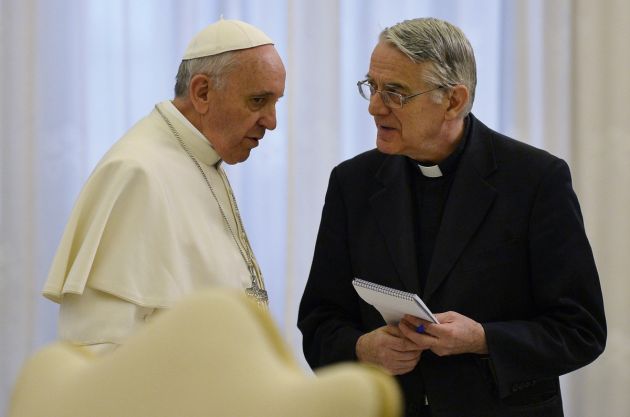Pope Francis's anti-mafia stance stokes tensions: Italian prosecutor

ROME (Reuters) - Pope Francis's anti-mafia rhetoric and financial reforms at the Vatican are stoking tension between the mob and the Church, an Italian prosecutor said in an interview with Reuters.
Nicola Gratteri, the leading Calabrian mob prosecutor, dismissed headlines that said the mafia wanted to kill the pontiff following another interview the senior investigator gave to an Italian newspaper on November 13.
Instead, Gratteri said he was simply pointing out that the pope's efforts to break historic ties that the 'Ndrangheta, as the Calabrian mafia is known, has maintained with the Roman Catholic Church is angering mob bosses.
"Since the mafias need popular consensus to control their territory, they need to be seen as close to the Church," Gratteri told Reuters on Wednesday night.
"Pope Francis is saying clearly that there can be no compromises with mafias that extort and murder."
Mob bosses establish close ties to local priests as a way to show that their authority is recognised, he said, and their most important annual meeting takes place at the Sanctuary of the Madonna of Polsi in the rugged mountains that form the toe of the Italian boot.
Religious symbolism also looms large in the 'Ndrangheta. During the initiation rite that members call the baptism, an affiliate holds the burning image of St. Michael the Archangel while pledging his life to the organisation, Gratteri said.
REPENT
In May, Francis called on "mafiosi" to repent while addressing St. Peter's Square, echoing remarks made 20 years ago by Pope John Paul II in Sicily.
"My thoughts are with the suffering of women, men and also children who are exploited by the many mafias who make them slaves," Francis said. "They cannot do this, they cannot make our brothers slaves, we must pray to the Lord to make these mafiosi convert to God."
Perhaps even more bothersome to the criminal groups than the pope's words are the reforms being put in place to make the Vatican's financial dealings more transparent, one of the main goals of Francis's pontificate so far, Gratteri said.
Through drug trafficking, extortion and other illegal activities, Sicily's Cosa Nostra, Calabria's 'Ndrangheta and the Neapolitan Camorra have a joint annual turnover of 116 billion euros ($155.49 billion), the United Nations estimates.
The mob's illegal proceeds must be laundered before they can be spent freely in order not to attract the attention of the authorities. The Vatican passed a law just last month aimed at preventing laundering through the tiny city-state's bank.
Though there is no proof that the 'Ndrangheta has used the Vatican bank, officially called the Institute for Works of Religion (IOR), to launder money, Gratteri said, it has long been known for opaque and secretive dealings.
More than three decades ago, the Vatican bank was enmeshed in the bankruptcy of Banco Ambrosiano, then Italy's biggest private bank. Banco Ambrosiano's chairman, Roberto Calvi, was found hanging from London's Blackfriars Bridge in June 1982.
Members of the Sicilian mafia were accused of murdering Calvi, but no one was ever convicted of the crime.
The Vatican on Thursday dismissed possible mafia threats against the pope. "The Holy See is not concerned at all, there is no alarm," Vatican spokesman Father Federico Lombardi said. ($1 = 0.7460 euros)
(Editing by Mark Heinrich)